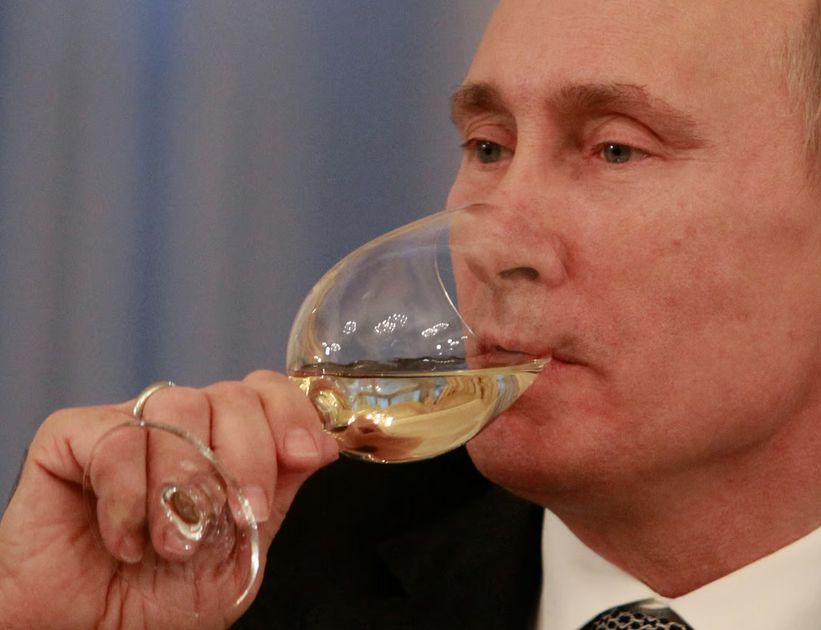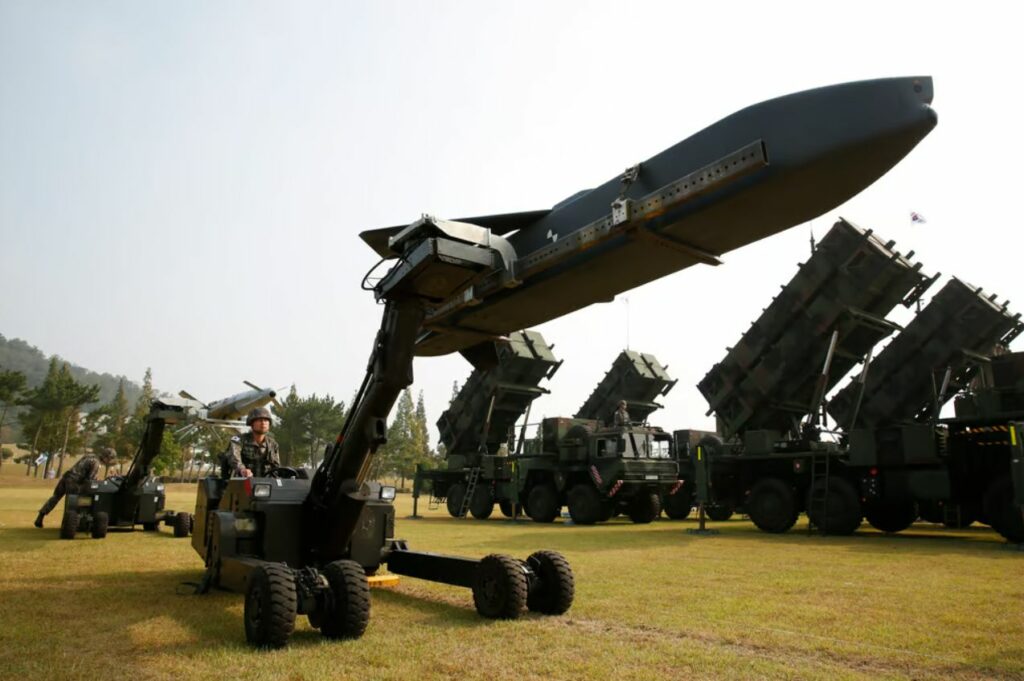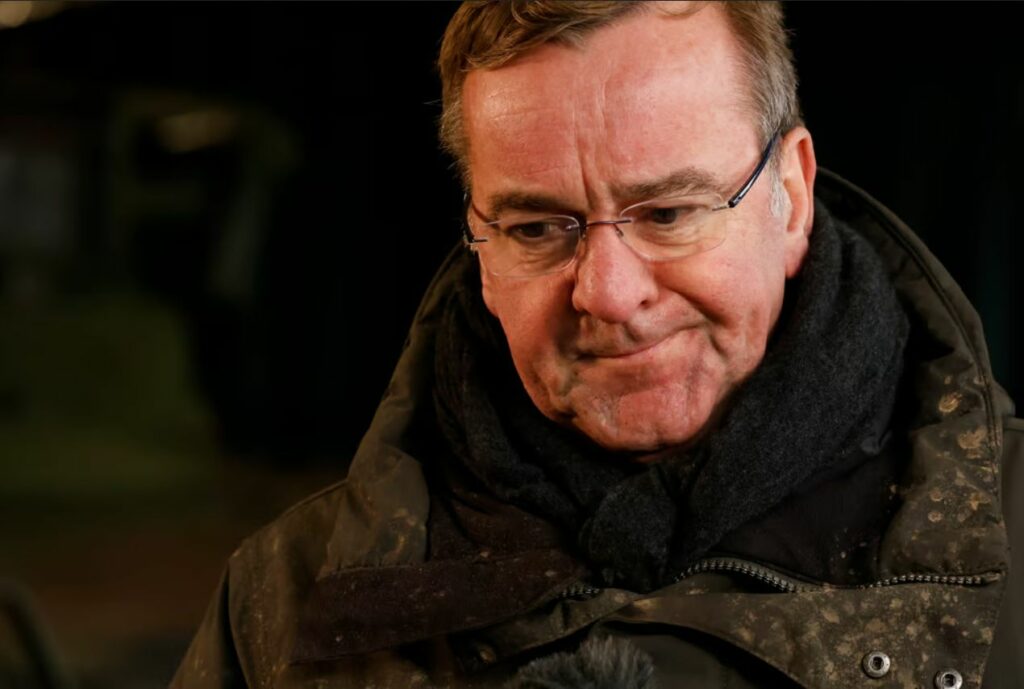Moscow’s espionage coup has divided Western allies, discredited Scholz and hampered Kyiv’s push for weapons.

Just days before the Russians released the recording, Olaf Scholz publicly ruled out sending Taurus missiles to Ukraine | Pool photo by Sergei Karpukhin/AFP via Getty Images
BERLIN — It may only be Tuesday, but Vladimir Putin has had a helluva week.
Over the past few days, Moscow has managed to sow division among its enemies, discredit the German chancellor, and thwart Ukraine’s push to secure key weapons — all without poisoning or assassinating a single person.
To review: A surreptitious recording of a video conference between several senior German military officials, including the head of the German Air Force, Ingo Gerhartz, was published on Friday by Russian propaganda network RT. During the nearly 40-minute meeting, which took place on Feb. 19, the men discussed in detail the politics and logistics of delivering Taurus cruise missiles to Ukraine, as well as possible targets.
For Putin, who after decades as Russia’s leader remains a spy at heart, there is no greater joy than outfoxing Russia’s adversaries in the dark arts (especially Germany, where he spent part of his KGB career running agents). To be fair, Putin received a major assist — however unwittingly — from German Chancellor Olaf Scholz.
Just days before the Russians released the recording, Scholz publicly ruled out sending Taurus missiles to Ukraine, arguing that doing so would require Germany to deploy soldiers to a war zone, which, in the chancellor’s view, would risk making Germany a Russian target.
“I’m surprised that some people aren’t even moved by it, that they don’t even think about whether what we’re doing could lead to a kind of involvement in war,” Scholz told reporters in Berlin Feb. 26, suggesting (much to their chagrin) that the U.K. and France, both of which are already supplying similar cruise missile systems to Ukraine, did have personnel on the ground there.
“This is a very far-reaching weapon, and what the British and French are doing in terms of target control and support for target control cannot be done in Germany,” Scholz said. “Everyone who has looked at this system understands that.”
Everyone, it would appear, except for Germany’s senior air force brass. During their intercepted call, the generals not only discuss how the missiles could be delivered to Ukraine without putting boots on the ground, but also express confusion at Scholz’s position.
“No one really knows why the chancellor is blocking,” Gen. Gerhartz says at one point. He goes on to describe what he calls “wild rumors” about why Berlin isn’t sending Taurus, including that the missiles don’t work properly, a suggestion he dismissed as “nonsense.” The general reveals he heard the rumor from a reporter “who is extremely close to the chancellor.”
Even before the recording was released, Scholz faced substantial blowback over his claim that Germany would have to deploy troops.
Last week, senior Green MP Anton Hofreiter said Scholz was “obviously not telling the truth” about the Taurus missiles, noting Germany had sent 260 to South Korea without the kind of targeting support the chancellor described. Hofreiter suggested the real reason for Scholz’s reluctance could be that “he has no trust in the Ukrainians.”
Indeed, Scholz and his fellow Social Democratic skeptics do have a longstanding fear that Kyiv might use any guided missiles Berlin sent to attack Moscow directly. The Taurus, which is typically launched from the belly of a fighter aircraft, has a range of about 500 kilometers, meaning a Ukrainian plane making a short detour over the country’s northern border could bring the Russian capital within range.
The ostensible purpose of the leaked meeting was to develop a communications strategy for German Defense Minister Boris Pistorius | Morris MacMatzen/Getty Images
Proponents of sending the missiles argue that Ukraine has so far not violated limits placed on the deployment of weaponry Germany and other countries have supplied. To be sure, the risk of Ukraine’s ignoring such strictures in the heat of the battle can’t be ignored. And yet, given that Germany has already supplied Ukraine with nearly €30 billion in aid and military gear, including tanks, many security experts question the logic behind Scholz’s refusal on Taurus.
The ostensible purpose of the leaked meeting was to develop a communications strategy for German Defense Minister Boris Pistorius, to give him rhetorical ammunition in his conversations with Scholz.
One concern shared by the senior officers was that the U.K. and France were already resisting sending further cruise missiles themselves until Germany followed suit. The implication was that while Germany’s Taurus alone wouldn’t determine the outcome of the war, they would be part of a much larger supply chain keeping Ukraine above water.
One “unique selling point” of Taurus, the officers suggested, was that the missiles are particularly precise, which could make it easier for Ukraine to take out strategic targets such as the Kerch Bridge linking Russia and Crimea. One of the officers said the air force had “intensively studied” how to destroy the bridge, predicting Ukraine would need 10-20 Taurus missiles to do so.
The bigger issue, they agreed, was overcoming concerns within the German government over the appearance of German involvement. Training the Ukrainians to use the missiles on their own would take several months; what’s more, they would need detailed targeting information that would have to come from Germany.
One suggestion discussed on the call involved using the defense contractor that manufactures the missiles as a go-between and sending the targeting data by car via Poland to Ukraine.
“Someone could drive back and forth,” one of the officers suggested.
Another participant cautioned his colleagues against pitching such ideas to Pistorius because they could scupper the project before it got off the ground. “We have to be careful that we don’t articulate any kill criteria at the beginning,” he said. “Imagine what would happen if the press were to catch wind of this!”
One way to avoid such difficulties might be to involve the U.S. or U.K. “We know there are a lot of people with American accents running [around] in civilian clothes [at the Ukrainian command],” one of the officers said.
Scholz’s government has sought to characterize the exchanges as the kind of war-gaming that the military officers are paid to conduct. The real scandal, Pistorius argued, was Putin’s “information war.”
“We’re dealing with a hybrid attack involving disinformation to divide us and undermine our unity,” Pistorius said on Sunday. “We shouldn’t fall for Putin’s trick.”
In truth, however, the Russian hack owed more to old-fashioned spycraft than disinformation. Yes, Putin may be using the recording to feed his propaganda machine at home, presenting it as more evidence that the West is out to get Russia. But Germany leaks like a sieve, and its counterintelligence defenses are in sore need of an overhaul.

The recording exposes the institutional frustration of Germany’s military and its bewilderment at the chancellor’s intransigence on sending cruise missiles | Jeon Heon-Kyun/EFE via EPA
Moreover, nothing the officers said on the call was manipulated.
That’s what makes the tape so powerful: It’s not “disinformation,” just uncensored information.
The recording exposes the institutional frustration of Germany’s military and its bewilderment at the chancellor’s intransigence on sending cruise missiles. Unfortunately for Ukraine, the release of the conversation has made it even more unlikely Kyiv will get the missiles, at least for now. Opposition politicians have signaled they may call for an investigation into the affair and of whether Scholz was candid about why he wouldn’t send the missiles. But that process could take weeks, if not months, and will do little to help Ukraine.
“Scholz has increasingly become a security risk for Europe,” said Roderich Kiesewetter, a Christian Democrat MP who leads his party on the Bundestag’s foreign affairs committee.
On Monday, Scholz, ignoring calls from his foreign minister to act, made it clear the leak had not changed his position.
“I’m the chancellor and that’s the way it is,” he said on a visit to southern Germany.
For Putin, it was mission accomplished.

